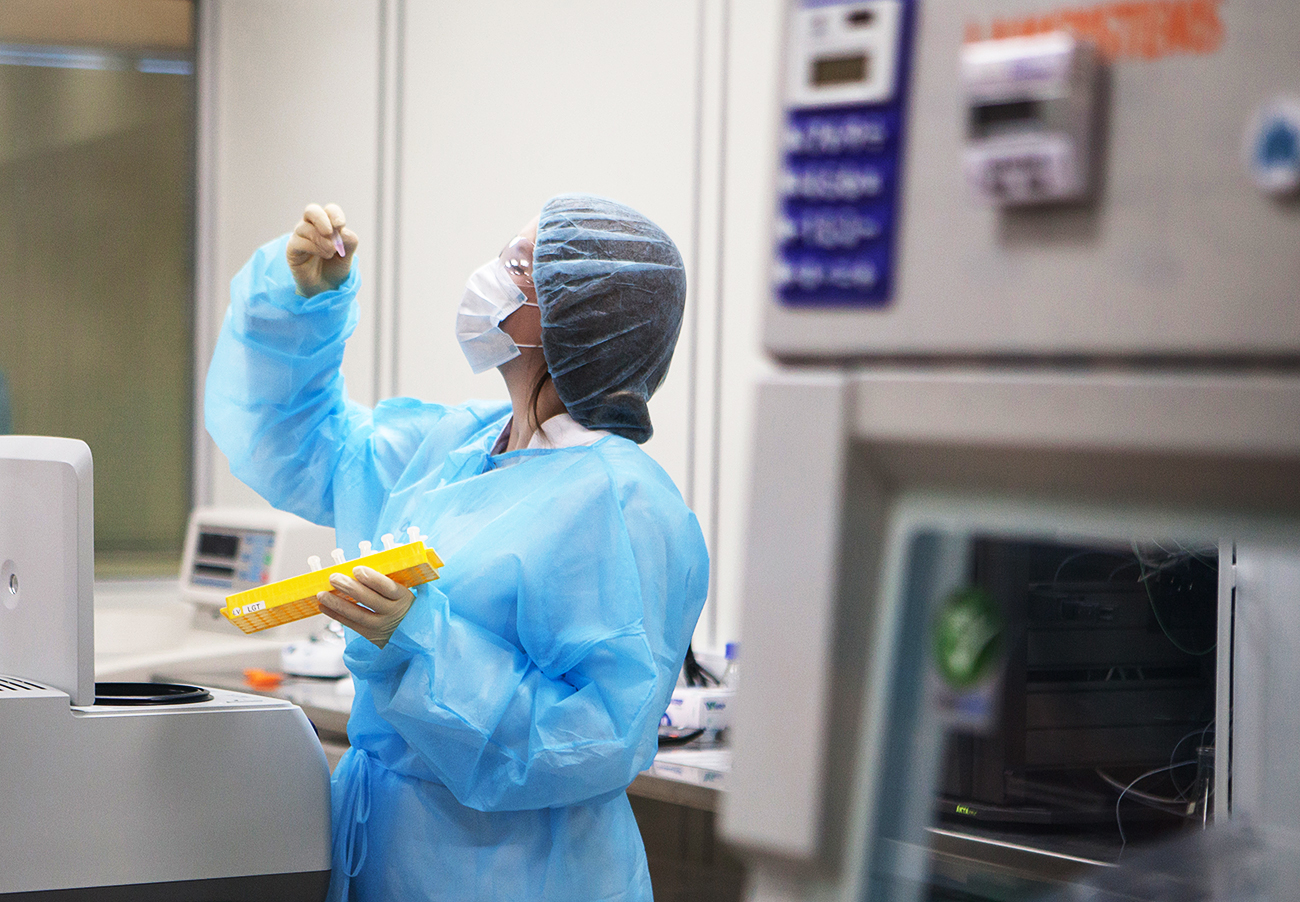Is Russia close to finding a cure for cancer?

Scientists performed experiments on sea urchin embryos and then on human cancer cells. The cells die because of the destruction of special structures: microtubules that consist of tubulin protein.
Mikhail Kireev/RIA NovostiRussian scientists have identified compounds capable of fighting especially virulent forms of cancer that are resistant to chemotherapy, such as ovarian carcinoma, a malignant tumor that can develop in a woman’s ovaries. In November 2016 researchers isolated 12 compounds that can slow down and fully stop cancer cell growth.
Resources needed
Scientists performed experiments on sea urchin embryos and then on human cancer cells. The cells die because of the destruction of special structures: microtubules that consist of tubulin protein. The discovered compound has an effect precisely on the tubulin protein.
The discovery, however, won’t be further developed because scientists are still looking for a laboratory and need more resources to test the compounds on human cancer cells transplanted into animals.
"The biomedical development process functions well in Europe and America, but in Russia there are problems with financing, especially when experiments are performed on animals and during clinical research," said Alexander Kiselev, research director and professor at the Moscow Institute of Physics and Technology (MIPT).
Together with colleagues at Moscow State University (MSU) and the Moscow Engineering Physics Institute, the MIPT scientists will perform tests on animals using new sulfur-containing molecules with selenium that fight tumors with their antioxidant qualities.
"We've already synthesized the new selenium-containing molecules with high anti-tumor activity," said Yan Ivanenkov, director of the bioinformatics laboratory at MIPT's business incubator. "Now we are conducting tests on the cells, but later in 2017 we plan to do experiments on animals."
Using magnetic fields to fight cancer
Researchers from several institutes in Krasnoyarsk are developing methods for using magnetic nano- and micro-particles to destroy cancer cells. Magnet-vortex therapy proved effective on mice, and it works through selective and mechanical cell destruction.
Animals with tumors were given an injection with nanostructures and subjected to a 10-minute 100Hz alternating magnetic field. Such a weak field does not damage healthy cells, but it activates the nanostructures and microdiscs on the surface of the cancer tumor, and destroys them.
Microdiscs can be used for tumor microsurgery, but for now they are still too big and damage the surrounding tissue. The scientists began collaborating with the Krasnoyarsk Radio Plant to produce large quantities of nanodiscs that are 20-50 nanometers in size and which come in various shapes.
Like in any country, much time and investment is needed for new developments to be introduced to the market. Anna Zamai, project director at the SORAN Krasnoyarsk Scientific Center, said that the Russian cancer scientists need financing to finish their work, and that all past grant money has been depleted. The project continues only thanks to the scientists' initiative and enthusiasm.
"The effectiveness proven by scientists does not always lead to commercial certification and success," said Zamai. "Any development needs a commercial partner and investor willing to develop a completely new drug, to certify it, and to invest in preclinical and clinical experiments."
Read more: Siberian scientists discover the depression gene in Europeans>>>
If using any of Russia Beyond's content, partly or in full, always provide an active hyperlink to the original material.
Subscribe
to our newsletter!
Get the week's best stories straight to your inbox
